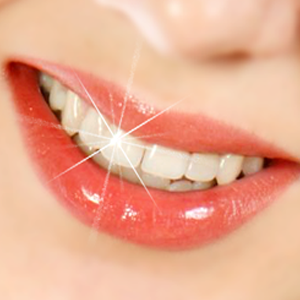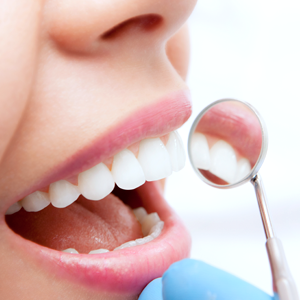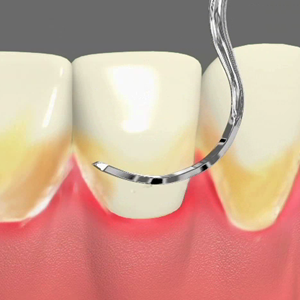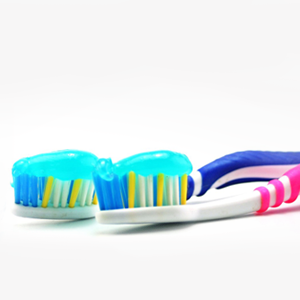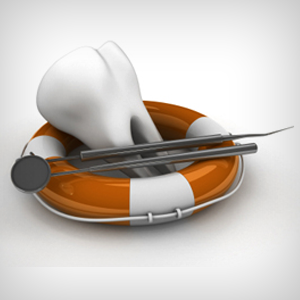Immediate or Transitional Dentures
These dentures are delivered as soon as the remaining non-restorable teeth are removed. They serve as a bandage to the sockets and help in controlling the bleeding. For the next 24 hours do not remove the dentures from your mouth. Apply firm pressure by biting on a gauze pad for 30-45 minutes following the appointment. You may have to repeat this several times. You may apply cold pack externally to control bleeding and swelling. Your immediate dentures will contain the swelling. Take the prescribed pain medication and antibiotics. Do not rinse your mouth vigorously. Restrict your diet to soft and cold foods. It is normal to see your pillow stained with blood. Do not panic. The following morning gently rinse your mouth.
As your sockets heal your dentures will get loose and will need to be adjusted several times. Learning to wear your new dentures (particularly full dentures) is much like learning a new sport. It takes practice and patience. Try not to become discouraged at first. Wear your dentures regularly so your dentist can locate the sore spots when you go in for an adjustment.
You may salivate more when you first get your denture. This is normal and usually stops anywhere from within the first few minutes to a few days. It is important that you practice talking. Talk to yourself, read aloud and sing. You should sound normal within a very short time.
You will also need to practice eating. Do not plan to eat your first meal in public. Cut your food into small bites, eat easy to chew foods and chew slowly.
Some people feel more comfortable wearing adhesives under their dentures (particularly full dentures). You can experiment with over the counter adhesives. It is important to make sure you remove the entire adhesive each day when you clean your dentures.
At the end of 3 months your Dentist will reline your denture in house to make them fit tighter. Bone usually takes 365 days to completely heal. At the end of a year your Dentist will send your dentures for a lab reline. It is usually done within a day so be prepared to take a day off.
Transitional dentures are only for the period of gum and bone healing and your Dentist may recommend permanent dentures.
The removable partial or full denture must be removed at least 8 hours each day, preferably at bedtime. Letting the denture stay in the mouth 24 hours a day will cause you to develop sores and fungus under it. It should also be removed and cleaned after meals. When you take it out at bedtime, clean it with a brush and soak it in water, mouthwash or a denture cleaner. Do not let the denture dry out, as this can cause it to warp. When rinsing and brushing your denture over the sink, it is best to place a wash cloth in the basin with some water to cushion the denture should you drop it. The acrylic will break if dropped.
Even if you wear a full denture, it is still important to see your dentist regularly. Your dentures should be checked routinely, along with both the fit and the bite. A poorly fitting denture can cause problems with the underlying tissues and bone loss. You will also be checked for oral cancer and other diseases that can show up in the mouth.


